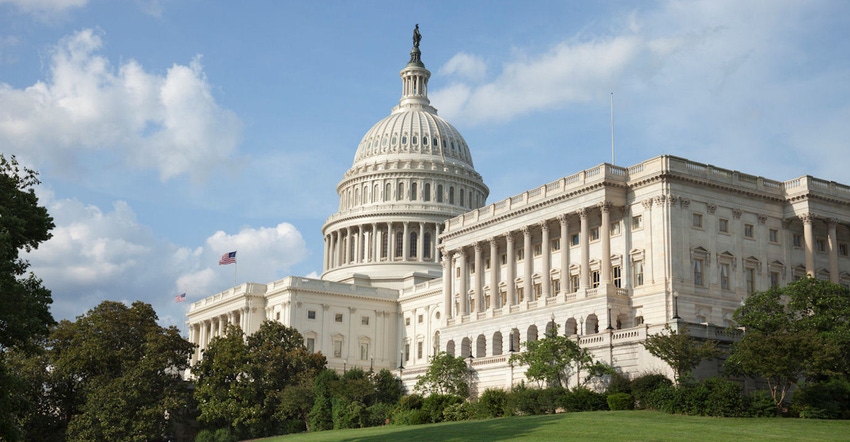INSIDE WASHINGTON: What does 2018 election mean for ag?
Congress will choose between gridlock or bipartisanship as Democrats assume control in House.

The hope is always for bipartisanship on Capitol Hill after this week’s midterm elections solidified a split Congress, with Democrats controlling the House and Republicans maintaining power in the Senate. The question remains if there’s an appetite for bipartisanship or whether more gridlock is on the menu.
“We have a window of time we could accomplish things by the end of 2019, and then you are in campaign mode, and the odds for getting things done become less and less as lawmakers focus more on controlling the White House,” Roger Bernard, senior policy analyst for Informa Economics, said.
“Democrats know they need to have some success,” Bernard added. “In order to do that, they have to work with Republicans in the Senate, and those in the Senate need to work with the Democrats in the House.”
The health care debate deflated much of the air for progress on Capitol Hill in 2017, stealing momentum many had hoped would translate into infrastructure investments. Bernard expects infrastructure to be an area where Democrats and Republicans will achieve some kind of agreement.
Previously, President Donald Trump had proposed an infrastructure package with a large portion carried by the private sector. The Democrats might want to see more federal government spending in any infrastructure package.
“This will offer the first glimpse on whether budget hawks will sink talons into anything,” Bernard warned, as Senate Republicans are up in numbers as the growing deficit becomes harder to ignore. “Democrats will want to get something done and not just issue subpoenas and hold hearings. They know they need to have some accomplishments as they look towards 2020 as well.”
Colin Woodall, senior vice president of government affairs at the National Cattlemen’s Beef Assn. (NCBA), said he expects the next two years to be “all about gridlock.” He said he assumes that House Democrats will spend a lot of time on congressional oversight.
For those in agriculture, it is expected that longtime bipartisan champion Rep. Collin Peterson (D., Minn.) will resume his chairmanship as the top agricultural Democrat on the House Agriculture Committee. He’s one of the few “blue dog Democrats” left and has a long history of working on the right policy rather than getting bogged down by politics.
In comments after the election, Peterson said he’s hopeful that Congress can move ahead on a bipartisan basis, including ways Congress can work with the President. In discussions he’s had with assumed new speaker of the House Nancy Pelosi (D., Cal.), he said she’s going to do everything in her power on a bipartisan basis to get things done on the farm bill and infrastructure and has some ideas on ethics reform.
“We all need to work together,” Peterson said of Trump. “I want him to be successful, because if he’s successful, the country’s successful.”
Peterson confirmed his desire to increase oversight when he takes over the agriculture committee. He plans to examine U.S. Department of Agriculture actions to relocate the Economic Research Service outside of Washington, D.C., as well as controversy over the beef checkoff and the Commodity Futures Trading Commission.
Meanwhile, Woodall said he expects the Senate to play two main roles moving ahead: thwart any effort to pass harmful legislation advanced by the House, and approve as many Trump nominees as possible.
Woodall said if history is any indicator, he expects a “race to the finish line by the Republicans to get as much done as possible before returning to the minority” as they close out this calendar year. This includes a focus on completing a farm bill during the lame-duck session as well as the agricultural appropriations bill, in which NCBA supports language addressing the electronic logging device concerns from the agriculture industry and “fake meat.”
About the Author(s)
You May Also Like





